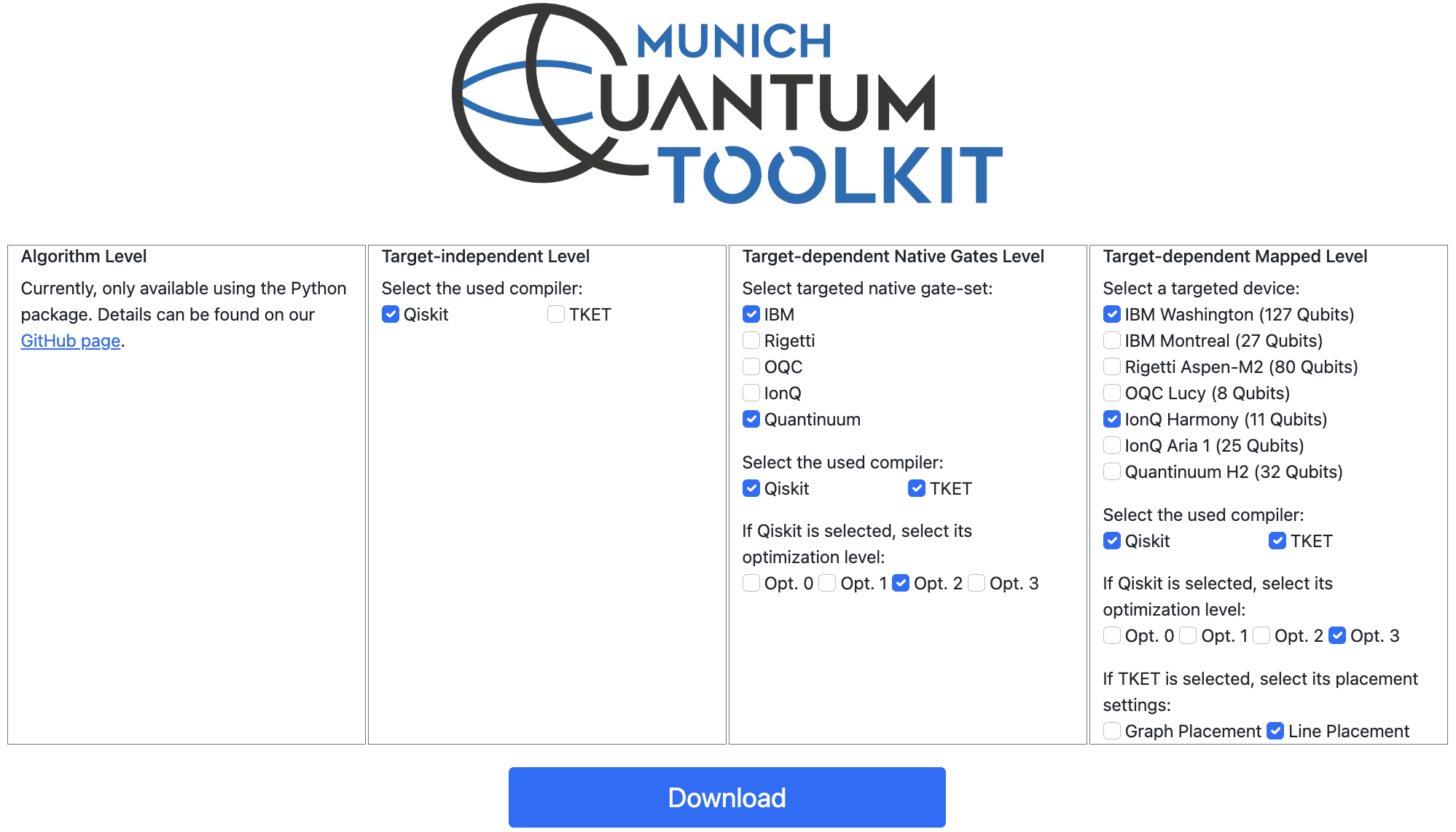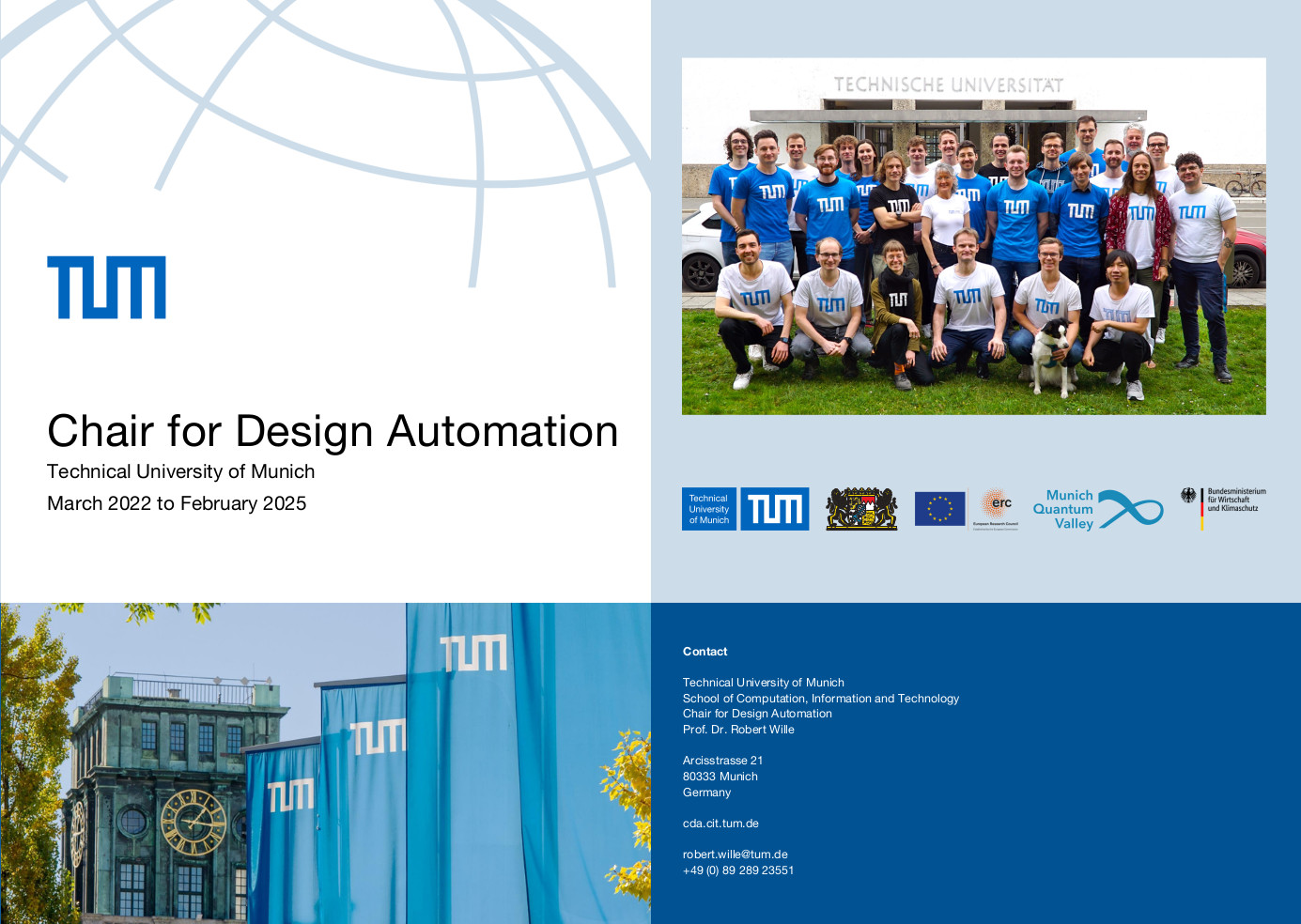
Noise-aware Quantum Circuit Simulation
Quantum computers promise to solve specific problems exponentially faster than classical computers. Thus, a lot of research is currently going on into the development of quantum hardware. However, despite the tremendous progress that has already been made towards the realization of quantum computers, they are still severely limited in scalability and reliability. In the near future, we will be in the so-called Noisy Intermediate-Scale Quantum (NISQ) era, i.e., real quantum computers will be available, but their applications will be limited, due to noise effects during the computations. Since noise and errors are such dominant aspects of coming quantum computers, it is essential to evaluate whether quantum algorithms can cope with this. To this end, methods for quantum circuit simulation are required that allow for an explicit investigation of how a given algorithm behaves on a specific device.
In our work, we research how to efficiently accomplish this task. To this end, we investigate two complementary approaches, namely deterministic and stochastic consideration of errors.
Deterministic Simulation of Errors
Quantum computers are prone to errors, and thus realistically simulating their execution requires taking those errors into account. Fortunately, quantum mechanics can describe these errors and their effects—leading to first simulation approaches to support the consideration of those errors. Unfortunately, the capabilities of those simulation approaches are severely limited by the inherent exponential nature of the matrices, required to represent the quantum state.
In our work, we evaluate how considering decoherence errors affects the simulation performance of approaches based on decision diagrams and propose solutions to mitigate negative effects.
Details of the methodology are summarized in the paper entitled “Considering Decoherence Errors in the Simulation of Quantum Circuits Using Decision Diagrams” [pdf].
Stochastic Simulation of Errors
As a theory, quantum mechanics can deterministically model the error effects occurring within real quantum hardware. However, the required formalism renders the exponentially hard problem of quantum circuit simulation even harder—limiting corresponding simulation approaches. In this work, we consider an alternative approach that avoids making a hard problem unnecessarily harder. Instead, we are considering a stochastic error model. That is, we assume that errors occur randomly throughout individual simulation runs and approximate the effect of errors on a quantum computation by forming empirical averages over multiple simulations (Monte Carlo).
Based on this formalism, we propose a solution which (1) uses decision diagrams to represent states and operations in a more compact fashion and (2) conducts concurrent executions to accelerate the generation of samples. Experiments against state-of-the-art confirm the viability of the proposed solution.
Details of the approach are summarized in the paper entitled “Stochastic Quantum Circuit SimulationUsing Decision Diagrams” [pdf].
An implementation of the simulator is available on GitHub. In case of questions/problems, don’t hesitate to contact us via quantum.cda@xcit.tum.de or create an issue on GitHub.
If you use the simulator for your research, we will be thankful if you refer to it by citing the following publication:
@inproceedings{grurl2021Stoch,
title={Stochastic Quantum Circuit Simulation Using Decision Diagrams},
author={Grurl, Thomas and Kueng, Richard and Fu{\ss}, J{\"{u}}rgen and Wille, Robert},
booktitle={Design, Automation and Test in Europe (DATE)},
year={2021}
}
MQT Bench Online Tool
To evaluate the correspondingly developed methods, we additionally provide the benchmark suite MQT Bench comprising more than 70,000 benchmark circuits ranging from 2 up to 130 qubits on four abstraction levels.

More on our work on quantum computation is summarized in this page.



